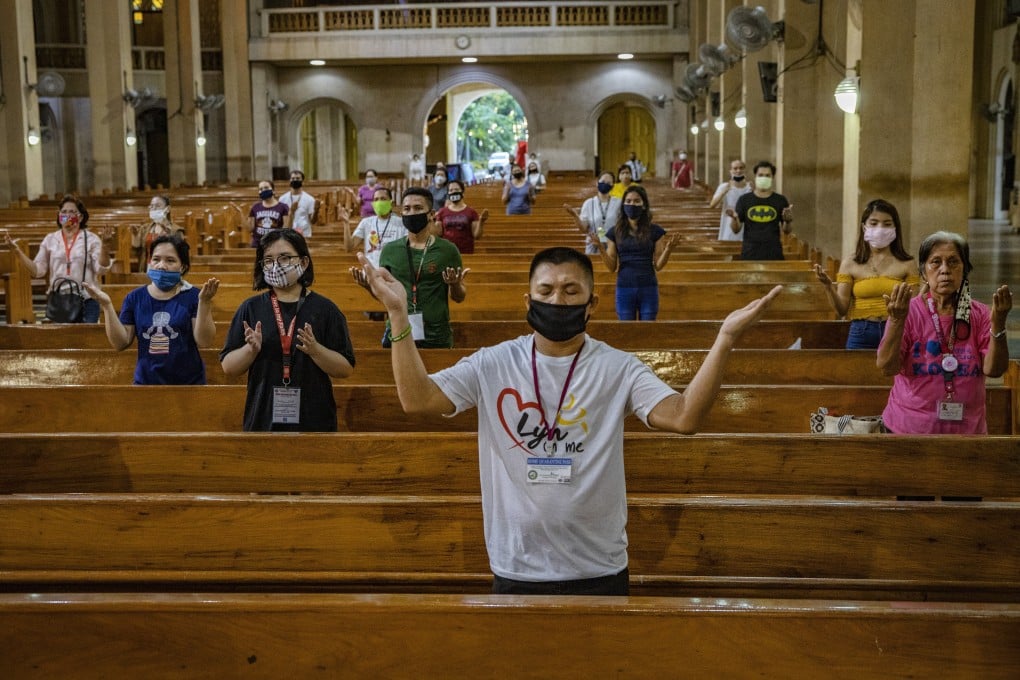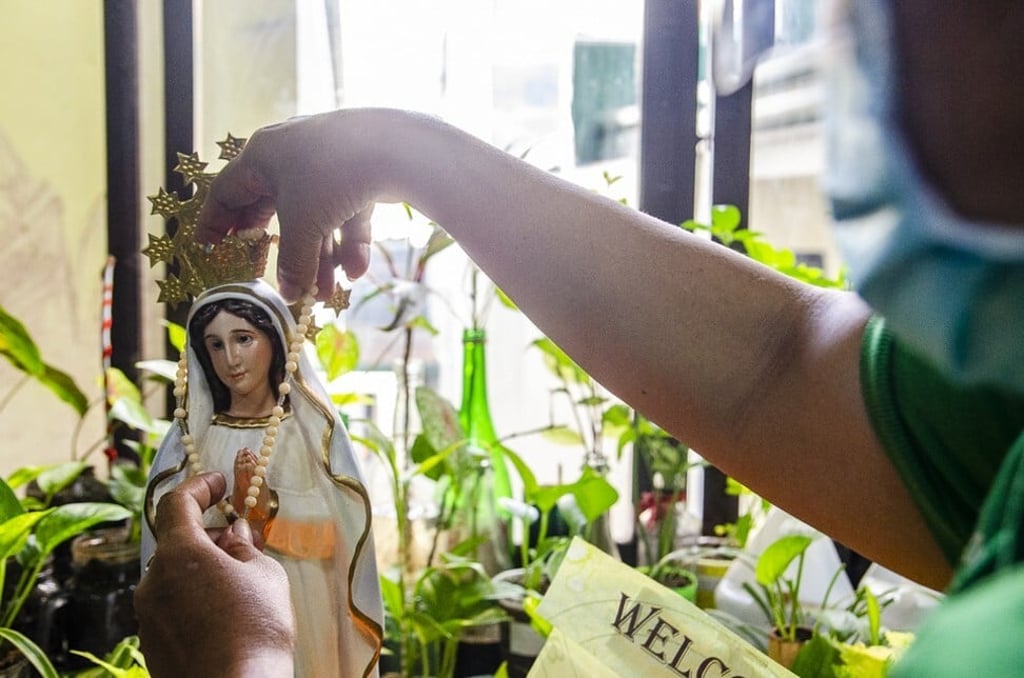Surge in Philippines pandemic suicides shines light on mental health issues, which continue to be stigmatised in the country
- Suicides prompted calls for church leaders to provide guidance as people in the deeply religious country turn to their faith to deal with the pandemic crisis
- Some Filipinos view mental illness as a lack of faith and mental illness continues to be stigmatised, despite the introduction of a mental health law in 2018

Maribel Bronda, a 50-year-old environmental officer from Quezon City, in Metro Manila, thought about killing herself when she caught the coronavirus.
While the Philippines struggles to deal with the coronavirus pandemic that has swept the nation since early this year, many Filipinos have battled mental health crises caused by the upheaval, chaos and continuing danger of viral infection.
Bronda tested positive for the virus in early June and was admitted to a quarantine facility in the city. She says her loneliness and isolation were challenging because she had never been away from her family before.
“I couldn’t sleep most nights, and I was really longing for companionship,” she says. “On top of that, I was also questioning why it had to be me.”
While in quarantine, Bronda learned her husband and son had also caught the virus. The stress of the news paired with her loneliness led to thoughts of suicide, which she fought to ignore.
These days, months after being released from quarantine, she continues to have bouts of anxiety. “Whenever I hear an ambulance’s siren, I get really nervous,” she says. “But I steel myself and tell myself that the Lord will keep me safe.”
